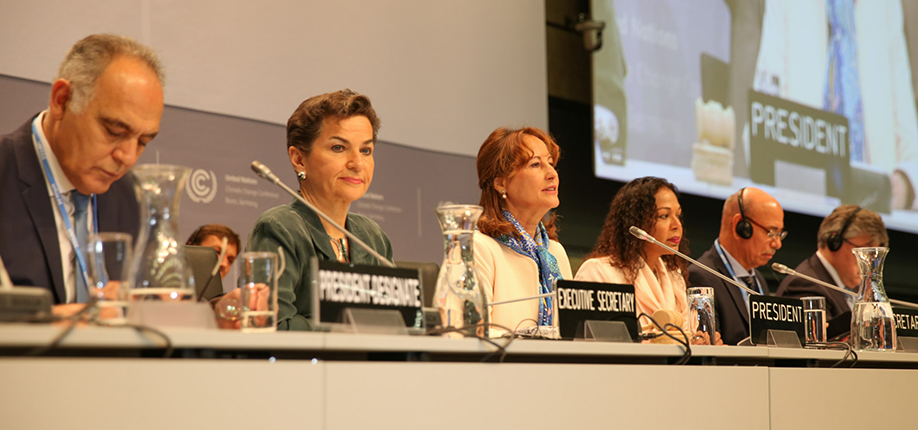The latest round of UN climate change negotiations is underway in Bonn, 16-26 May, with governments looking to the next steps needed to accelerate the implementation of the landmark Paris Climate Change Agreement and continue the unprecedented momentum forged in 2015.
In order to ensure the aims and ambitions of the agreement, global greenhouse gas emissions will need to peak soon followed by quick reductions over the years ahead.
In the second half of the century those emissions need to be so low they can be easily absorbed by the Earth’s natural systems such as forests and soils. Building and supporting more resilient societies and economies will also be key.
Governments are already moving rapidly to bring the agreement into force. The Bonn UN Climate Change Conference comes just weeks after 176 countries and the EU signed the agreement, with several key economies indicating they are ready to join the agreement this year and 16 States already depositing their instruments of ratification.
The Bonn meeting comes in advance of the 22nd Conference of the Parties (COP 22) to be held in Marrakech in November. Here governments will begin work on the “rule book” of the Paris Agreement covering how the agreement will work in detail once it enters into force.
Topics for the rule book include issues such as transparency on the reporting of climate action by nations as part of their Nationally Determined Contributions (NDCs).
Given that immediate and accelerated climate action is required for governments to reach their climate goals, a key focus in Bonn will be on activities which have a high potential to curb and reduce emissions.
The Foundation is attending the meeting to highlight the importance of human rights informed climate action. The Foundation is encouraging Parties to share experiences and build their capacity to adopt a human rights based approach to the implementation of the Paris Agreement.
In addition the Foundation is working with partners to ensure that women, particularly grassroots women are enabled to participate in climate policy decision-making.
The Foundation believes that grassroots women should be recognised as agents of change in the development of local and national responses to climate change and empowered to act upon that agency. Therefore, the global climate response and fora under the UNFCCC should enable the meaningful participation of grassroots women to benefit from their knowledge and expertise. As part of our commitment to the principles of climate justice, the Foundation is supporting two grassroots women to participate in the second workshop scheduled by the Lima Work Programme on Gender which will take place on the 18th (Wednesday) and 19th (Thursday) of May. Josephine Castillo from the Philippines and Rosemary Wambua from Kenya will present their experiences of working on climate change at a community level to the workshop which will focus on gender responsive climate policy with a focus on adaptation and capacity-building, and training for delegates on gender issues.
Rosemary Wambua is a grassroots community leader from Kitui in Kenya. She is Chairperson of the Kitui Women Poverty Eradication Group and the Climate Justice Women coordinator in Kitui county. She has been working with local women to enhance food security, develop efficient cook stoves and enhance access to policy makers for grassroots women.
Josephine Castillo is a grassroots community leader and organiser with DAMPA in Manila, Philippines, a country that is extremely vulnerable to climate change. She has worked extensively on a number of key urban poor issues, including reversing forced eviction and involuntary relocations, ensuring land and housing security for poor communities, and advocacy for the pro-vision of basic services in urban poor communities.


